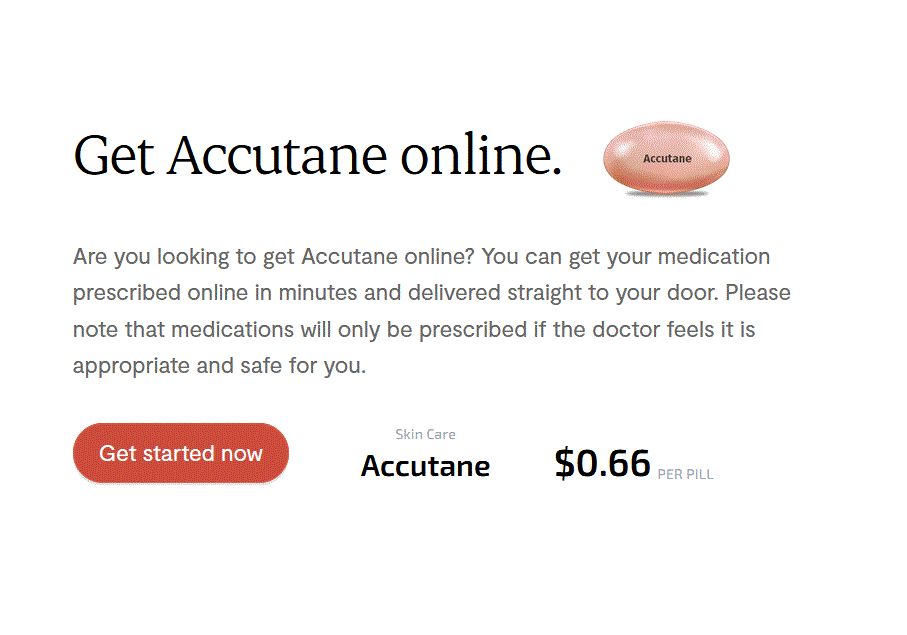Accutane over the counter
The article discusses cases of Accutane application, summarizes drug background and lists down all advantages and disadvantages, as well as side effects of this medication.

Accutane represents a type of vitamin A and its main function – reduction of the oil volume produced by oil glands in human skin, as well as assistance in skin regeneration in a faster manner.
Drug Name: |
Accutane |
| Tablet Strength: | 40 mg, 30 mg, 20 mg, 10 mg, 5mg |
| Best Price: | $0.67 Per Pill |
| Payment: | Visa, MasterCard, PayPal, BTC |
Where to Buy Accutane Over The Counter? |
Visit Canadian Pharmacy 24 |
Brief Overview of Accutane and Its Application
Accutane is prescribed for treatment of severe nodular acne (also known as cystic acne) and is generally prescribed only after other-associated medications or antibiotics have proven to be unsuccessful (e.g., clindamycin or benzoyl peroxide applied directly to the skin or tetracycline and minocycline taken orally). Accutane originates from a group of medications called retinoids. Its main function is achieved via reduction of facial oil (sebum) generation, since high concentration of sebum can cause severe acne. Untreated cases of severe acne may result in permanent scarring.
Means of Accutane Use and Dosage
It is necessary that you familiarize yourself with the Medication Guide shared by your healthcare provider prior to initiating Accutane treatment as well as every time you obtain its refill. Swallow capsules whole. Do not crush or chew them. Isotretinoin is usually taken twice daily for 15-20 weeks, or as directed by your doctor. Accutane can be taken with meals and its dosage generally depends on the severity of each particular case.
The dosage is based on your medical condition, weight, and response to treatment. Acne may deteriorate whiten first several days of Accutane treatment, and it require around 1-2 months prior to complete benefit of this drug can be observed. In case of severe acne relapse, a 2nd treatment cycle may be required 2 months after you have completed the previous cycle. It is not recommended by manufacturer to maintain a long-term application of Accutane. The recommended dose should not be exceeded at any time.
Summary of Side Effects and Precautions
Although Accutane has already proven to be effective for severe acne treatment, it still can cause some side effects, which every patient should be aware of in order to be able to take timely action and avoid worsening of health conditions.
The list below shares most commonly observed side effects observed during Accutane treatment:
- Dryness of mouth and lips;
- Minor swelling of lips and eyelids;
- Bleeding nose;
- Crusty skin;
- Upset stomach;
- Hair thinning.
In case if any of abovementioned side effects persist or deteriorate, do not hesitate to get in touch with your healthcare specialist for prompt assistance.
Kindly inform your physician if you observe any sort of allergic reaction to Accutane, vitamin A-related medications (other types of retinoids like tretinoin), or some inactive ingredients (e.g., parabens, soybean), which could be contained in Accutane.
Prior to taking Accutane, inform your healthcare specialist about your medical history, including: diabetes, personal or family history of high blood fats (triglycerides), any mood/ mental issues (e.g., depression), liver conditions, obesity, eating disorders (e.g., anorexia nervosa), pancreatitis, abuse of alcohol, bone loss conditions (e.g., osteomalacia/ osteoporosis, reduced bone density). Abstain from any blood donation while undergoing treatment with Accutane.

